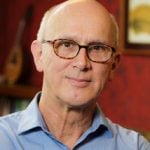
In the vestibule of San Francisco’s ornate Grace Cathedral, visitors will find a printed sheet intended to put them at ease with religion in general and the Episcopal Church in particular. It consists of three paragraphs written by Bishop William E. Swing, for 20 years head of the Diocese of California. He assures the visitor that in Grace Cathedral one will find “immunity from the ravages of religion and the misuse of divine revelation. You know from the past about inquisitions and crusades and witch hunts. You live in a time of religious military zealots, abortion clinic bombings, and TV evangelists attempting to take power in our land.”
Let’s parse this.
Does the visitor really “know from the past about inquisitions and crusades and witch hunts”? He knows the terms, of course, but does he know anything about the events? Not likely. What he knows is prejudice, not facts. A few years ago appeared Edward Peters’ book Inquisition, which effectively undermined the Black Legend. Then, as though trying to trump Peters, PBS aired a historically accurate look at the myths that have arisen about the Inquisition. Taken together, the book and documentary demonstrated that what the visitor to Grace Cathedral “knows” just wasn’t so.
Nothing comparable has appeared in defense of the real history of the Crusades, but those military-and-religious adventures are eminently defensible, even though, like all wars, excesses and venality and acquisitiveness were to be found in them (along with discipline and valor and generosity).
And witch hunts? Ah, that was almost exclusively a Protestant activity, rampant not just in the Massachusetts Bay Colony but in England, where, after the Reformation, as many as 800 “witches” were executed each year. Witch-hunting fever was nearly absent from Catholic countries because Catholics had the confessional, where overwrought women could be counseled to keep their imaginations in check and their tongues from making groundless accusations.
I am not sure what Bishop Swing means by “religious military zealots.” I do not think he means, say, Navy chaplains who are devout. His fear-mongering about abortion clinic bombings and televangelists tells me that he thinks in stereotypes. (Is there anyone in America, other than Episcopal clergymen, who really thinks the Republic is at risk from television preachers? Those who fear the influence of the Bilderbergers seem to have a stronger case.)
Bishop Swing’s epistemological problem is to be found in his claim that no “one religious tradition exclusively contains all truth.” No one throughout Christian history, not even the most ambitious pope, ever made such a claim. After all, if a church “exclusively contains all truth,” then not a single truth it contains can be found in any other church. Catholics rejoice in the fact that, while the Catholic Church alone really does contain all religious truth (leaving no truth out, endorsing no untruth), portions of that truth can be found elsewhere. Catholics are happy to acknowledge that the Episcopal Church, while promoting many errors (even through its bishops), promotes many truths.
Half a loaf is still better than none.


